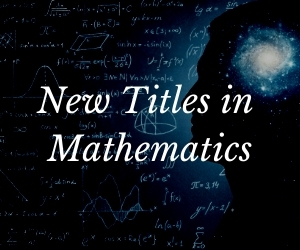System Upgrade on Tue, May 28th, 2024 at 2am (EDT)
Existing users will be able to log into the site and access content. However, E-commerce and registration of new users may not be available for up to 12 hours.For online purchase, please visit us again. Contact us at customercare@wspc.com for any enquiries.
Optimization is now essential in the design, planning and operation of chemical and related processes. Although process optimization for multiple objectives was studied in the 1970s and 1980s, it has attracted active research in the last 15 years, spurred by the new and effective techniques for multi-objective optimization (MOO). To capture this renewed interest, this monograph presents recent research in MOO techniques and applications in chemical engineering.
Following a brief introduction and review of MOO applications in chemical engineering since 2000, the book presents selected MOO techniques and many chemical engineering applications in detail. In this second edition, several chapters from the first edition have been updated, one chapter is completely revised and three new chapters have been added. One of the new chapters describes three MS Excel programs useful for MOO of application problems. All the chapters will be of interest to researchers in MOO and/or chemical engineering. Several exercises are included at the end of many chapters, for use by both practicing engineers and students.
Sample Chapter(s)
Chapter 1: Introduction (373 KB)
Contents:
- Introduction (Gade Pandu Rangaiah)
- Multi-Objective Optimization Applications in Chemical Engineering (Masuduz Zaman and Gade Pandu Rangaiah)
- Multi-Objective Evolutionary Algorithms: A Review of the State-of-the-Art and Some of Their Applications in Chemical Engineering (Antonio López Jaimes and Carlo A Coello Coello)
- Multi-Objective Genetic Algorithm and Simulated Annealing with the Jumping Gene Adaptations (Manojkumar Ramteke and Santoshi K Gupta)
- Multi-Objective Optimization Using an Evolutionary Algorithm Embedded with Multiple Spatially Distributed Surrogates (Kalyan Shankar Bhattacharjee, Amitay Isaacs and Tapabrata Ray)
- Why Use Interactive Multi-Objective Optimization in Chemical Process Design? (Kaisa Miettinen and Jussi Hakanen)
- Net Flow and Rough Sets: Two Methods for Ranking the Pareto Domain (Jules Thibault)
- Multi-Objective Optimization of Multi-Stage Gas-Phase Refrigeration Systems (Nipen M Shah, Gade Pandu Rangaiah and Andrew F A Hoadley)
- Feed Optimization for Fluidized Catalytic Cracking Using a Multi-Objective Evolutionary Algorithm (Kay Chen Tan, Ko Poh Phang and Ying Jie Yang)
- Optimal Design of Chemical Processes for Multiple Economic and Environmental Objectives (Elaine Su-Qin Lee, Gade Pandu Rangaiah and Naveen Agrawal)
- Multi-Objective Emergency Response Optimization Around Chemical Plants (Paraskevi S Georgiadou, Ioannis A Papazoglou, Chris T Kiranoudis and Nikolaos C Markatos)
- Array Informatics Using Multi-Objective Genetic Algorithms: From Gene Expressions to Gene Networks (Sanjeev Garg)
- Optimization of a Multi-Product Microbial Cell Factory for Multiple Objectives — A Paradigm for Metabolic Pathway Recipe (Fook Choon Lee, Gade Pandu Rangaiah and Dong-Yup Lee)
- Evolutionary MOO of a Complex Process — A Surrogate-Assisted Approach (Ian Sharma, Andrew F A Hoadley, Sanjay M Mahajani and Anurradda Ganesh)
- Optimization of Heat Exchanger Network Retrofitting: Comparison of Penalty Function and Feasibility Approach for Handling Constraints (Bhargava Krishna Sreepathi and Gade Pandu Rangaiah)
- Multi-Objective Optimization Programs and Their Application to Amine Absorption Process Design for Natural Gas Sweetening (Shivom Sharma, Gade Pandu Rangaiah and François Maréchal)
Readership: Professors, graduates and senior-level undergraduates, researchers, and industry engineers and managers in chemical engineering.






















